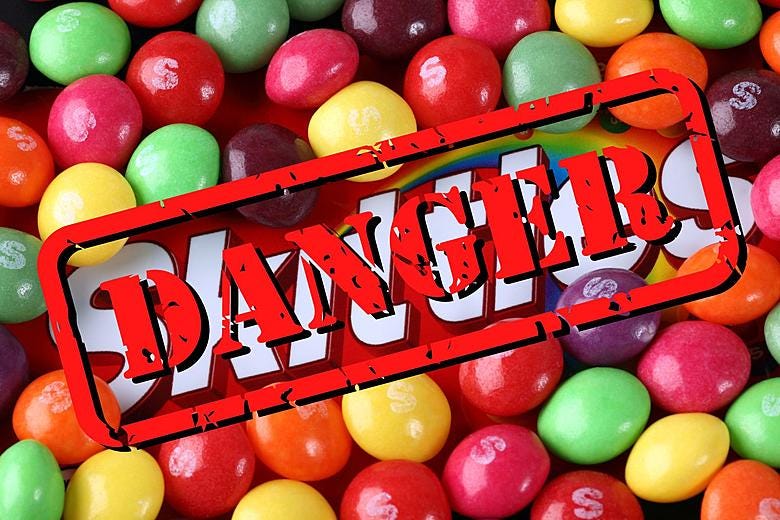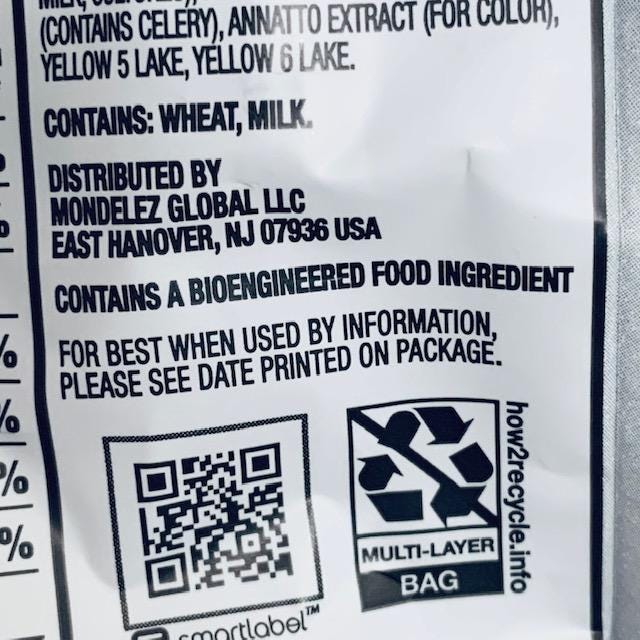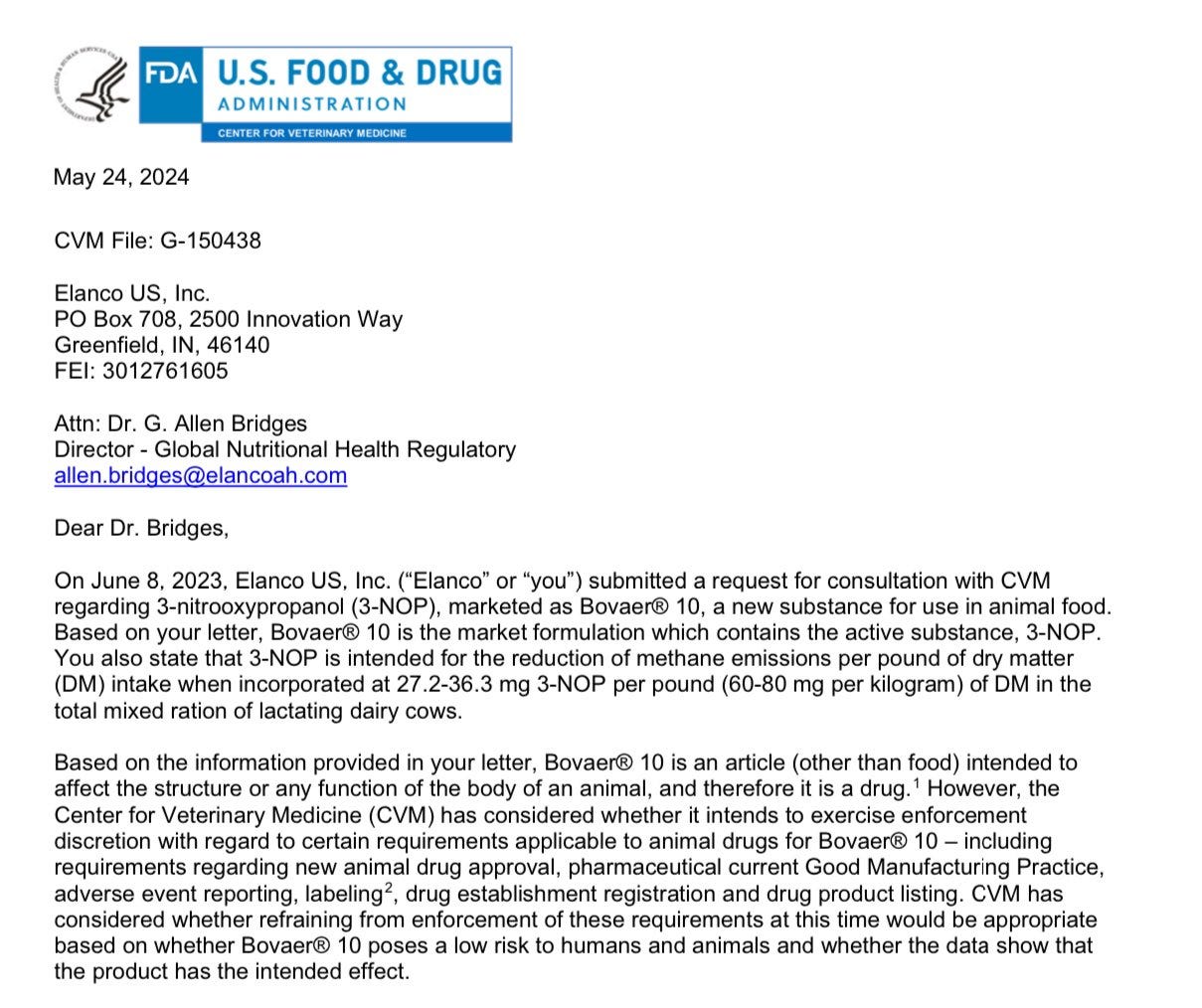Farming, a practice that began 10,000 to 12,000 years ago during the Neolithic Revolution, has shaped human civilization. Yet, despite millennia of progress, our modern methods often clash with nature. The increasing reliance on biotechnology and Genetically Modified Organisms (GMOs) has introduced complex risks, potentially heightening our exposure to foodborne illnesses & other health threats to include death. For example, the Boar's Head deli meat recall in 2024 was linked to a Listeria monocytogenes outbreak that resulted in 10 confirmed deaths and 61 reported illnesses across multiple states. Compounding the issue, food safety practices have seen alarming declines. In 2024 alone, the FDA flagged 294 items on its Recalls, Market Withdrawals, and Safety Alerts list—underscoring the urgent need to rethink how we produce and handle our food as much of it may be unfit for human consumption.
I used to think eating healthy whole foods was the best way to protect oneself from potentially harmful chemicals in our food. I’ve always had my doubts about the organic label but in general, if a fruit or vegetable was on the ‘dirty dozen’ list for heavy pesticide application, I’d try to buy organic if it made financial sense to do so. Have you purchased any frozen vegetables lately? Look at the back of the bag. “Contains a bioengineered food ingredient.” Yikes!
Here are Some of the Foods Recalled by the FDA in 2024 -
Publix Deli Carolina-Style Mustard BBQ Sauce - Undeclared Fish,
Multiple Brands to include The Quaker Oats Company Cereal, bars, and snacks - Potential for Salmonella contamination
Aged Cojita Mexican Grating Cheese - Potential Listeria monocytogenes contamination
Spinach and Salad Kits - Potential Foodborne Illness-Listeria monocytogenes
Cheese, Yogurt, Sour cream - Expanded recall for potential Listeria monocytogenes contamination
Black Bean 6 Layer Dip - Potential for Listeria monocytogenes contamination
Marcum Ground Cinnamon & Supreme Tradition Ground Cinnamon - Elevated Lead Levels
Cucumbers (12/7/24) - May be contaminated with Salmonella
That’s just a sample going into the first three months of 2024. You can find the rest of the recalled list here.
It’s not like if you avoid a certain category of food, method of packaging, store, or brand. There’s contamination in everything from spices to bean dip! You may want to keep the recall list as one of your bookmarks & check it before you make your next grocery trip.
In addition, as of December 6, 2024, the U.S. Department of Agriculture issued a federal order requiring the testing of the nation's milk supply amid increasing concerns over bird flu. As with COVID PCR & Rapid Antigen tests, they are known to have a higher chance of false positives due to their lower specificity. The more you test, the more you will find. As of November 4, 2024, 22.37 million birds have been affected by H5 detections in 45 commercial and 30 backyard flocks. According to NPR, as of December 6, 2024, the USDA has confirmed that 710 dairy herds in 15 U.S. states have been infected with avian influenza. The majority of new infections have been in California. The U.S. Department of Agriculture issued a federal order requiring the testing of the nation's milk supply amid increasing concerns over bird flu.
What they don’t tell you is that you cannot get bird flu (avian influenza) from drinking milk. Avian influenza viruses primarily infect birds, and human cases are typically associated with direct contact with infected birds, their droppings, or contaminated environments. Consuming properly cooked or pasteurized products, including milk and eggs, is safe because heat kills the virus. Although one shouldn’t be able to catch bird flu from drinking raw milk despite a ‘possible’ bird flu contamination in raw milk & cream products from the company Raw Farm based in Fresno, California.
The powers-that-be don’t want you to eat eggs or drink milk & they especially don’t want you to eat beef. On November 26th, Arla Foods Limited announced a partnership with Tesco, Aldi, and Morrisons to trial a methane-reducing feed “additive” called Bovaer in the United Kingdom. Bovaer’s active ingredient, 3-nitrooxypropanol (3-NOP), inhibits a key enzyme in the methane production process within a cow’s stomach. Other ingredients include silicon dioxide and propylene glycol. They claim it’s an additive when the FDA considers it a drug:
This thread on X goes into more detail about Bovaer, its connections with BlackRock, The Bill and Melinda Gates Foundation, & more. Your spidey senses should tingle by the mere mention of those names. You can read all the gory details for yourself but the gist of it is, it hasn’t been tested for human consumption & trails in rats yielded tumors in females & lowered sperm count in males. In addition to being labeled “corrosive to eyes, irritating to skin, and harmful if inhaled”.
Click on Picture for Link to X Thread
It has become so obvious that our food supply is tainted that even Bernie Sanders is calling out the FDA Commissioner of Food and Drugs, Robert Califf.
Bernie Sanders just grilled Biden’s FDA chief on chronic disease and corruption. He held NOTHING back:
“How many kids have died and gotten sick?” Sanders:
“The food and beverage industry spends hundreds and hundreds of millions of dollars on lobbying and on campaign contributions. You tell me the role that they are playing in destroying the health of America’s children.”
Califf: “Well, I’m not gonna contest your comment about the amount of money spent on lobbying … but a lot of the changes that those of us who are interested in better health would like to make are blocked at the level of legislation for reasons—”
Sanders: “I’m still not hearing you. What is the reason that our kids are unhealthy? … Are you prepared to tell us that this committee, this Congress needs to take on the food and beverage industry, whose greed is destroying the health of millions of people?”
Califf: “Well, I’m not gonna castigate the people that work in the food and beverage industry—”
Sanders: “You’re not?”
Califf: “No.”
Sanders: “That is your job!”
Califf: “No … it’s to point out how to make progress in this area.” “So, there needs to be a plan and it needs to be implemented in a mature, thoughtful way across the country.”
Sanders: “How many years does it take to do it? 14 years enough time? How many kids have died and gotten sick during those 14 years?”
Califf: “I want to see it change as much as anyone, but we have to do it in a way that considers all the factors—”
Sanders: “Protecting the interests of the food and beverage industry.”
Click the Picture Above to Watch a 5-Minute Snapshot of Bernie’s Questioning
According to the CDC, approximately 40% of American adults are considered obese, defined as having a body mass index (BMI) of 30 or higher. The obesity rate among children and adolescents aged 2–19 is approximately 19.7%, equating to about 14.7 million individuals. Obesity is most prevalent among adolescents aged 12–19, with a rate of 22%. In contrast, Europeans on average, are approximately 23% of adults in are considered obese. Many attribute the difference in obesity levels to the varying food standards.
European Union (EU) often adopting stricter standards compared to the United States (USA). This difference is primarily due to varying approaches to food safety, risk assessment, and the precautionary principle employed by the EU.
Notable Food Additives Banned or Restricted in Europe yet Permitted for use in the USA:
1. Azodicarbonamide (ADA)
USA: Approved for use as a dough conditioner in bread and other baked goods.
EU: Banned due to concerns about its potential to break down into harmful byproducts, such as semicarbazide, which is a possible carcinogen.
2. Potassium Bromate
USA: Allowed as a flour improver to strengthen dough and allow higher rising.
EU: Banned because it has been classified as a possible human carcinogen based on animal studies showing that it can cause cancer.
3. Brominated Vegetable Oil (BVO)
USA: Used in some soft drinks and sports beverages to help distribute flavoring agents evenly.
EU: Banned due to concerns about its accumulation in the body and potential adverse health effects, including neurological issues.
4. Olestra (Olean)
USA: Approved as a fat substitute in certain snack foods like chips and crackers.
EU: Banned because it can cause digestive issues, such as abdominal cramps and diarrhea, and interferes with the absorption of fat-soluble vitamins.
5. Butylated Hydroxyanisole (BHA) and Butylated Hydroxytoluene (BHT)
USA: Permitted as antioxidants to prevent oils from becoming rancid.
EU: BHA is restricted to specific uses and concentrations, while BHT is banned as a food additive due to potential carcinogenic effects observed in animal studies.
6. Ractopamine
USA: Approved for use in livestock to promote leanness in animals raised for their meat.
EU: Banned because of concerns about animal welfare and potential human health risks, including increased heart rate and blood pressure.
7. rBGH/rBST (Recombinant Bovine Growth Hormone)
USA: Approved for use in dairy cows to increase milk production.
EU: Banned due to concerns about animal health, milk quality, and potential human health risks, such as increased levels of insulin-like growth factor 1 (IGF-1) in milk.
8. Artificial Colors (Certain Red and Yellow Dyes)
USA: Various artificial colors are approved for use, some of which are linked to hyperactivity in children.
EU: Several artificial colors, including Red 40 (Allura Red) and Yellow 5 (Tartrazine), require warning labels about potential adverse effects on activity and attention in children.
9. Carrageenan
USA: Approved as a thickener and stabilizer in a variety of food products, including dairy and meat products.
EU: Restricted in certain uses and concentrations due to concerns about gastrointestinal inflammation and other health issues.
10. Titanium Dioxide (E171)
USA: Approved for use as a whitening agent in various food products.
EU: Recently banned as a food additive starting from 2022 because of concerns about its potential to cause cancer when ingested.
Key Differences in Regulatory Approaches
Precautionary Principle: The EU often employs the precautionary principle, which allows for preventive action in the face of uncertainty, leading to bans or restrictions on additives that have not been conclusively proven harmful but show potential risks.
Risk Assessment and Scientific Evaluation: The EU's risk assessment processes can be more conservative, requiring more extensive evidence of safety before approving additives for use.
Consumer Protection Focus: The EU places a strong emphasis on consumer protection and public health, which influences stricter regulations on food additives.
The problem is, almost all countries are in the pockets of the World Economic Forum’s Net Zero climate agenda (hence the creation of Bovaer in the first place), BlackRock, & The Bill and Melinda Gates Foundation (one of the largest private donors to the WHO at 10-12% of total budget).
What Can my Fellow Warriors do About it?
Understand your ‘acceptable level of risk’ based upon your own personal tolerances which may include; GI issues, gluten sensitivities, allergies, lactose intolerance, & personal conditions like cancer & diabetes.
If you don’t know what is causing your digestive, skin, or hair issues, consider an elimination diet or an at-home food sensitivity test.
Read food labels. The shorter the ingredients list the better. The more natural the ingredients the better. Keep an eye out for bioengineered labels, Apeel, & EU banned substances.
Keep current with the food recalls on the FDA list. If you have any of the listed foods, make sure you take the products to the store & get your money back. Don’t just throw out the food. Make sure the food manufacturers feel repercussions for their actions.
Wash, handle, & cook your food appropriately. Check out this homemade fruit & veggie spray/soak:
Until next time my fellow Warriors, stay informed, stay vigilant, Ever Forward!








